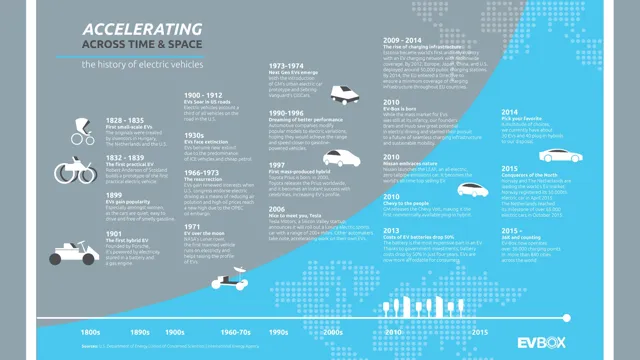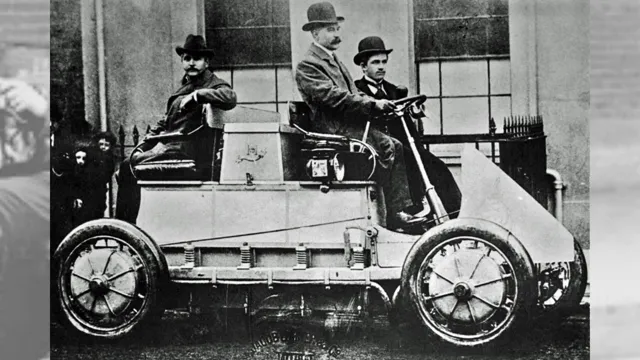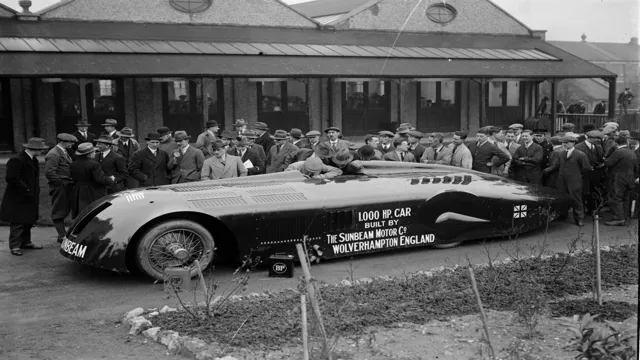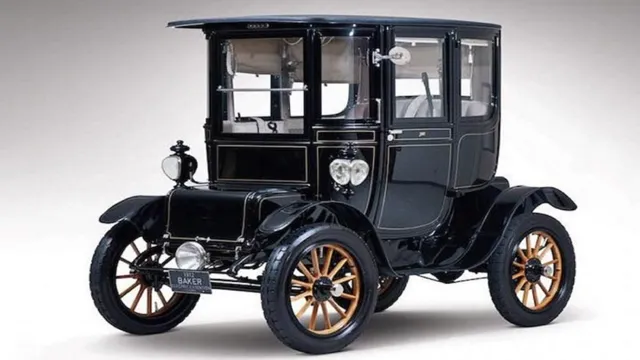Revolutionizing the Roads: A Comprehensive History of the Electric Car Industry
The electric car industry has come a long way since its inception. From the early days of experimental electric vehicles in the late 1800s to the present-day production of sleek and stylish electric cars, the industry has undergone a vast transformation. Over the years, there have been many successes and challenges for electric cars.
But with the increased focus on environmentalism and the urgent need to reduce carbon emissions, electric cars have become more popular than ever. One major turning point for the electric car industry was the development of lithium-ion batteries in the 1990s, which allowed for longer range and improved performance. In recent years, major automakers have invested heavily in electric technology, and more and more electric cars are hitting the road.
Governments around the world are offering incentives and subsidies to encourage the adoption of electric cars, and electric vehicle infrastructure is rapidly expanding. As the electric car industry grows, its impact on the automotive industry and the environment is becoming increasingly significant. But what does the future hold for electric cars? Will they eventually replace traditional combustion-engine vehicles? Or will they continue to coexist as a niche alternative? Join us as we explore the history and future of the electric car industry.
Introduction and Early Developments
The history of the electric car industry dates back to the early 1800s when inventors first experimented with electric vehicles. However, the production of electric vehicles on a larger scale didn’t begin until the late 19th century, with the first electric car being introduced to the market in 189 At that time, electric vehicles were more popular than gasoline-fueled ones, and they were particularly favored by women because they were cleaner, quieter, and easier to operate.
However, the rise of oil and gas giants brought about a significant decline in the electric car industry. The 20th century saw intermittent developments by car manufacturers, but electric vehicles remained a rarity. It wasn’t until the early 2000s, with Tesla’s founding in 2003, that the electric car industry re-emerged, and significant investments were made towards the development of electric cars.
Today, the industry continues to evolve, with more car manufacturers embracing sustainability and introducing electric models to their fleets, giving rise to a cleaner, more sustainable future.
The Emergence of Electric Cars
Electric cars have rapidly gained popularity in the recent past as more people focus on adopting eco-friendly modes of transportation. However, early developments of electric cars date back to the 19th century when inventors such as Thomas Davenport, Robert Anderson, and Thomas Parker experimented with electric vehicles. Surprisingly, their early models were quite efficient, with Thomas Parker’s electric car reportedly covering up to 80 kilometers on a single charge.
However, the high cost of production and maintenance made them less practical compared to gasoline-powered cars. It wasn’t until the 1970s that electric vehicles gained some popularity during the oil embargo era, sparking renewed interest in the development of electric cars. The modern electric car era was ushered in by General Motors’ introduction of the legendary EV1 in 1996, which was the first mass-produced and commercially sold electric car.
Since then, various car manufacturers, including Tesla, Nissan, and BMW, have developed numerous electric vehicle models, indicating the growing interest in green transportation.
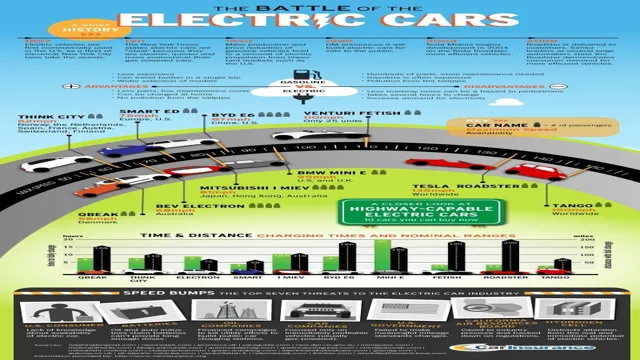
Inventors and Manufacturers in the Early Days
In the early days of invention and manufacturing, innovation was driven by necessity. A need for more efficient and cost-effective production methods spurred many inventors and manufacturers to experiment with new technologies. The steam engine, for example, revolutionized the manufacturing industry by providing a reliable source of power that could be used to operate machinery.
Many inventors, such as Eli Whitney and Samuel Morse, also developed new machines and tools that increased productivity and reduced the need for manual labor. These early pioneers laid the foundation for the modern industrial age, and their legacy can still be felt today in the many technological advancements that have followed. Without the ingenuity and determination of these early inventors and manufacturers, our world would be a very different place.
Challenges and Slow Growth
The electric car industry has come a long way since the first prototypes were developed in the 1800s. However, despite the advancements made in technology, the industry has faced many challenges and has experienced slow growth over the years. One of the significant challenges has been the lack of infrastructure to support the electric car market, such as charging stations and battery recycling facilities.
This has caused many potential buyers to remain hesitant to invest in electric vehicles, as they fear running out of charge while on the road. Additionally, the high cost of electric cars has also impeded growth in the industry, making them inaccessible to a large portion of the population. However, with increased investments by governments and corporations, the industry is slowly surmounting these challenges.
The use of more advanced batteries and the development of better charging technologies have improved the range and accessibility of electric vehicles, making them more attractive to consumers. Although the growth may be slow, the electric car industry history is a testament to the resilience and determination of the people involved in its development.
The Rise of Gasoline-Powered Cars
Gasoline-powered cars have been around since the 19th century, but they didn’t really take off until the early 20th century. The advent of the automobile brought about a new era of transportation, and gasoline-powered cars quickly became the vehicle of choice for many people. While there were challenges in the early years of the automobile industry, including a lack of infrastructure and high costs, the industry continued to grow slowly over time.
Today, gasoline-powered cars are still the most common form of transportation, although there is increasing interest in alternative forms of transportation, such as electric cars. Despite the challenges and slow growth, the rise of gasoline-powered cars has had a significant impact on the world, changing the way we live, work, and travel.
Environmental and Economic Factors
When it comes to the intersection of environmental and economic factors, there are definitely challenges that need to be overcome. For example, industries and businesses may prioritize profit over environmentally friendly practices, leading to pollution and other negative consequences. On the other hand, investing in sustainable practices may be costly and not immediately profitable, making it difficult for companies to make the switch.
Additionally, slow economic growth can make it challenging to prioritize environmental concerns, as businesses may focus on survival rather than sustainability. However, it’s important to recognize that economic and environmental factors are intertwined, and neglecting one can ultimately harm the other in the long run. By finding ways to balance both, such as through government policies or investing in more efficient technology, we can work towards a greener and more prosperous future.
Electric Cars in the 20th Century
Electric Cars in the 20th century faced a lot of challenges which led to a slow growth in its popularity. One of the significant issues was the lack of infrastructure. Charging stations were scarce, and it was difficult to find a charge point even if one could afford an electric car.
Additionally, the range of the early electric cars was limited, making them impractical for long trips. The high cost of batteries and the limited technology available to make them caused another challenge. While electric vehicles were cleaner and more efficient than their gas-guzzling counterparts, they still had a higher price tag.
Moreover, the lack of investment in research and development led electric cars to become stagnant for years, with little to no improvements. Slowly, however, things started to change, and electric cars began to become more popular as battery technology improved and governments invested more in the necessary infrastructure. Today, electric vehicles are more widespread, and they are becoming more accessible to consumers from all walks of life.
Revival and Advancements
The electric car industry has a fascinating history that is marked by numerous ups and downs. After an initial burst of success in the late 19th century, the industry lost steam due to various factors such as the development of the efficient internal combustion engine and the discovery of oil fields. However, the last few decades have seen a significant revival and advancement of electric cars.
This revival was sparked by a rising concern for climate change and the need for sustainable transportation. The advancement in battery technology also played a crucial role, making electric cars more efficient and reliable than ever before. Today, electric cars are becoming increasingly popular, and several major car manufacturers such as Tesla, Nissan, and Chevrolet are investing heavily in their development.
The future of the electric car industry is looking bright, and it is undoubtedly set to become a significant player in the automotive industry in the years to come.
The Impact of Battery Technology
Battery technology has come a long way over the years, revolutionizing the way we power our devices and machines. From traditional lead-acid batteries to modern lithium-ion batteries, the advancements in battery technology have been nothing short of remarkable. These developments have not only made our lives easier and more convenient but have also revolutionized entire industries such as electric vehicles and renewable energy.
With more and more emphasis being placed on sustainable and eco-friendly solutions, the importance of battery technology in our lives has become more significant than ever. As technology continues to progress, it’s exciting to think about the potential future advancements of battery technology and how they will impact our lives. Will we see batteries that last longer and recharge faster? Only time will tell as we continue to push the boundaries of what’s possible in the battery industry.
Government Incentives and Regulations
When it comes to advancing the adoption of renewable energy, government incentives and regulations are crucial. In recent years, we’ve seen a resurgence in these incentives, as countries around the world make commitments to reduce greenhouse gas emissions and combat climate change. In many cases, these incentives come in the form of tax credits and other financial benefits for those who invest in renewable energy.
At the same time, many governments are also implementing stricter regulations on fossil fuels, reducing subsidies for oil and gas companies, and requiring higher standards for energy efficiency in buildings and appliances. All of these measures are helping to create a more level playing field for renewable energy, making it easier and more cost-effective for consumers to choose greener options. With continued support from governments around the world, we can expect to see even more progress in the adoption of renewable energy in the years to come.
Current State and Future Directions
The electric car industry history has been a slow and winding journey, with various twists and turns along the way. In the early 1900s, electric cars were fairly popular, with some estimates suggesting that they made up 40% of all cars on the road. However, the rise of gasoline-powered cars, along with the discovery of large supplies of oil, led to the decline of electric vehicles.
It wasn’t until the 1990s that electric cars started to make a comeback, with the introduction of the GM EV1 and the Toyota RAV4 EV. These early electric cars were relatively expensive and limited in range, but they laid the groundwork for the industry we see today. In recent years, the electric car industry has exploded, with new models hitting the market from companies like Tesla, Nissan, and Chevrolet.
The future of the electric car industry looks bright, with advances in battery technology making longer ranges and faster charging times possible. As more people become aware of the environmental benefits of electric cars, and as governments around the world offer incentives to purchase them, it seems likely that we’ll see even more growth in this industry in the years to come.
Conclusion
In conclusion, the history of the electric car industry is an electrifying tale full of twists and turns. From their humble beginnings as experimental curiosities to their current status as viable alternatives to gas-guzzling vehicles, electric cars have come a long way. They’ve weathered countless setbacks and obstacles, but their potential for a cleaner, more sustainable future has kept them charging forward.
As we continue to innovate and improve upon this technology, who knows what the future holds for the electric car industry? Perhaps one day, fossil fuels will go the way of the dinosaur, and electric cars will reign supreme, electrifying our lives and the world around us. And hey, if you don’t believe us, just ask Tesla, they’ll tell you all about it.
FAQs
What is the history of the electric car industry?
The electric car industry has a history that dates back to the early 1800s, with the invention of the first electric vehicle. However, it was not until the late 1990s and early 2000s that the industry started to gain popularity with the introduction of the Toyota Prius and Tesla Roadster.
Who were the pioneers in the electric car industry?
There were many pioneers in the electric car industry, including Robert Anderson, Thomas Davenport, and Thomas Parker. However, it was Nikola Tesla who made significant contributions to the industry with the invention of the AC induction motor.
What were some of the major advancements in the electric car industry?
Some of the major advancements in the electric car industry include improved battery technology, longer driving ranges, and faster charging times. Additionally, the introduction of autonomous driving technology and the integration of renewable energy sources have revolutionized the industry.
How has government regulation impacted the electric car industry?
Government regulation has played a significant role in shaping the electric car industry. In many countries, regulations have been put in place to encourage the adoption of electric vehicles through tax incentives, subsidies, and mandates. However, the impact of government regulation on the industry has been mixed, with some policies being more effective than others.

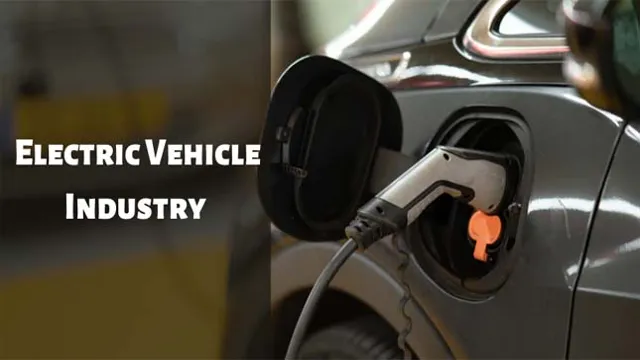
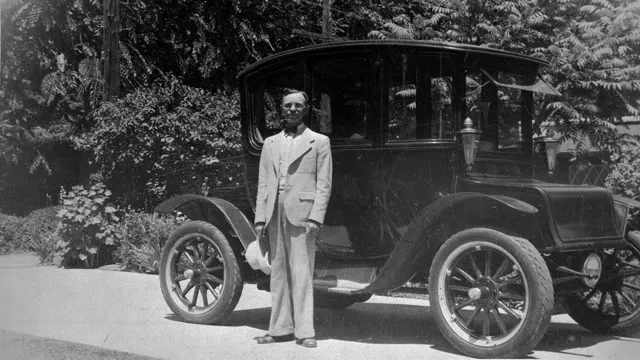
![The Shocking History of Battery-Only-Powered Cars: Unveiling the Rise of Electric Automobiles [PDF]](https://electriccarwiki.com/wp-content/uploads/2023/10/history-of-the-electric-automobile-batteryonly-powered-cars-pdf.webp)
